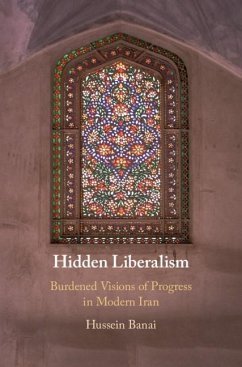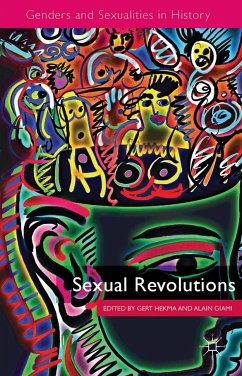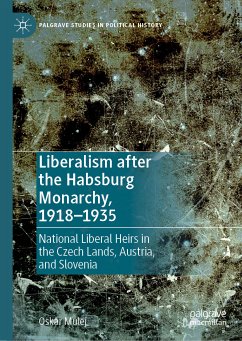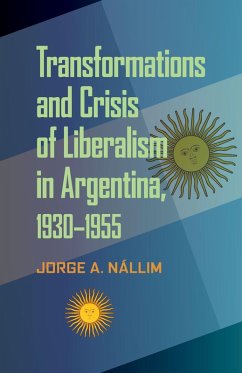
Uncivil Liberalism (eBook, PDF)
Labour, Capital and Commercial Society in Dadabhai Naoroji's Political Thought
Versandkostenfrei!
Sofort per Download lieferbar
55,95 €
inkl. MwSt.
Weitere Ausgaben:

PAYBACK Punkte
28 °P sammeln!
Uncivil Liberalism studies how ideas of liberty from the colonized South claimed universality in the North. Recovering the political theory of Dadabhai Naoroji, India's pre-eminent liberal, this book offers an original global history of this process by focussing on Naoroji's pre-occupation with social interdependence and civil peace in an age of growing cultural diversity and economic inequality. It shows how Naoroji used political economy to critique British liberalism's incapacity for civil peace by linking periods of communal rioting in colonial Bombay with the Parsi minority's economic dec...
Uncivil Liberalism studies how ideas of liberty from the colonized South claimed universality in the North. Recovering the political theory of Dadabhai Naoroji, India's pre-eminent liberal, this book offers an original global history of this process by focussing on Naoroji's pre-occupation with social interdependence and civil peace in an age of growing cultural diversity and economic inequality. It shows how Naoroji used political economy to critique British liberalism's incapacity for civil peace by linking periods of communal rioting in colonial Bombay with the Parsi minority's economic decline. He responded by innovating his own liberalism, characterized by labour rights, economic republicanism and social interdependence maintained by freely contracting workers. Significantly, the author draws attention to how Naoroji seeded 'Western' thinkers with his ideas as well as influencing numerous ideologies in colonial and post-colonial India. In doing so, the book offers a compelling argument which reframes Indian 'nationalists' as global thinkers.
Dieser Download kann aus rechtlichen Gründen nur mit Rechnungsadresse in A, B, BG, CY, CZ, D, DK, EW, E, FIN, F, GR, HR, H, IRL, I, LT, L, LR, M, NL, PL, P, R, S, SLO, SK ausgeliefert werden.













